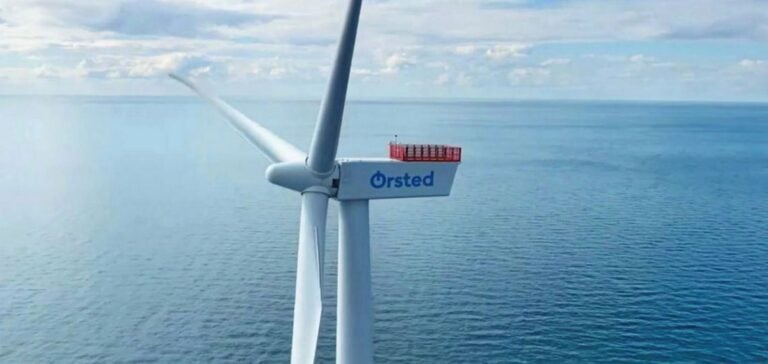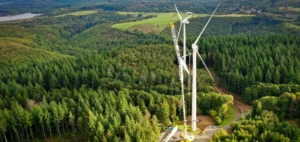Danish group Ørsted, a pioneer in renewable energy and a global leader in offshore wind, has disclosed an impairment of DKK 12.1 billion (€1.6 billion). This loss reflects the economic and operational challenges the company faces in its U.S. projects.
The Sunrise Wind project, located about 48 kilometers east of Montauk, New York, illustrates these difficulties. Delays related to supply chains and construction forced Ørsted to record an impairment of DKK 4.3 billion. This flagship project, essential to the company’s U.S. strategy, is now slowed by an unfavorable economic context.
Increased pressure from interest rates
Rising interest rates in the United States are weighing heavily on Ørsted’s finances. The group had initially secured fixed-price contracts in a low-interest-rate environment. The increase in financing costs, combined with persistent inflation in the construction sector, has rendered these projects less economically viable.
These conditions also led Ørsted to abandon two major projects, Ocean Wind 1 and 2, off the coast of New Jersey. These wind farms, which were set to strengthen the company’s North American presence, have become unprofitable.
A long-term commitment to the U.S. market
Despite these challenges, CEO Mads Nipper reaffirms Ørsted’s long-term vision for the U.S. market. According to him, the market remains attractive due to growing demand for renewable energy and the industrial opportunities it offers. “We remain committed to this market, even though the current complexities are particularly demanding,” said Nipper.
The company is striving to adapt to an offshore sector still in development in the United States. These adjustments should enable Ørsted to maintain its leading position while navigating an increasingly uncertain environment.
For fiscal year 2024, Ørsted still expects gross operating income (EBITDA) to reach DKK 24.8 billion, signaling that the group remains resilient despite these disruptions.






















